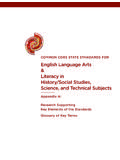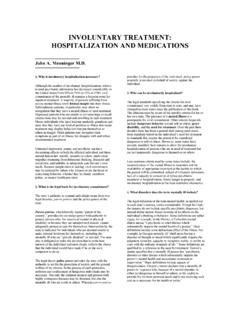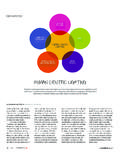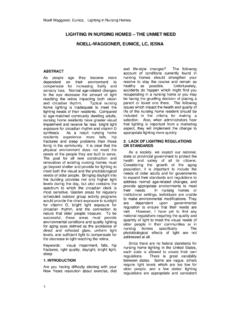Transcription of VJL - ABUSS: История, Философия
1 IDDH mmn901 CAR w2 Carr, Edward Hallett, 1892-What is history?188 0129215 000 001012 921 505 076 VJLPELICAN BOOKSWHAT IS HISTORY?Edward Hallett Carr was born in 1892 and educated at theMerchant Taylors' School, London, and Trinity College,Cambridge, where he was Craven scholar and took a doublefirst in classics. He joined the Foreign Office in 1916 and afternumerous jobs in and connected with the at home andabroad he resigned in 1936 and became Wilson Professor ofInternational Politics at the University College of Wales,Aberystwyth. He was Assistant Editor of The Times from1941 to 1946, Tutor in Politics at Balliol College, Oxford,from 1953 to 1955, and became a Fellow of Trinity College,Cambridge^ in 1955 and an Honorary Fellow of BalliolCollege, Oxford, in 1966.
2 He received the in 1920.""As a historian he is best known for his monumental Historyof Soviet Russia, which the Guardian referred to as 'amongthe most important works by a British historian thiscentury' and The Times called 'an outstanding historicalachievement'. He began his History in 1945 and worked at itfor nearly thirty years. It occupies fourteen volumes plus asummary, The Russian Revolution: Lenin to Stalin, and afurther volume is forthcoming entitled The Twilight of theComintern. Several parts of the History are published inPenguins: The Bolshevik Revolution, 1917-1923 (in threevolumes); The Interregnum, 1923-1924; Socialism in OneCountry, 1924-1926 (in three volumes); and Foundations of aPlanned Economy 1926-1929 (in two volumes, volume oneco-authored by R.)
3 W Davies). His other publications includeThe Romantic Exiles (1933), The Twenty Years' Crisis,1919-1939 (1939), Conditions of Peace (1942), The SovietImpact on the Western World (1946) and The New Society(1951). E. H. Carr died in 1982 and in his obituary TheTimes wrote, 'His writings were for the most part as incisiveas his manner. With the unimpassioned skill of a surgeon, helaid bare the anatomy of the recent beyond doubt heleft a strong mark on successive generations of historians andsocial thinkers.'R. W. Davies, who was born in 1925, is Professor of SovietEconomic Studies at the University of Birmingham in theCentre for Russian and East European Studies, of which hewas Director between 1963 and 1978. He graduated from theUniversity of London, and received his from theUniversity of Birmingham.
4 He collaborated with E. H. Can-on Foundations of a Planned Economy, 1926-1929, vol. 1(Penguin, 1974), and has since been working on a multi-volume history of Soviet industrialization, the first twovolumes of which appeared in 1980. He has also written andedited several studies of the contemporary Soviet H. CARRWhat is History:THE GEORGE MACAULAY TREVELYANLECTURES DELIVERED INTHE UNIVERSITY OF CAMBRIDGEJANUARY-MARCH I961 SECOND EDITIONEDITED BY R. W. DAVIES1 lil'J UUNBOOKSrPenguin Books Ltd, Harmondsworth, Middlesex, EnglandViking Penguin Inc., 40 West 23rd Street, New York, New York 10010, Books Australia Ltd, Ringwood, Victoria, AustraliaPenguin Books Canada Ltd, 2801 John Street, Markham, Ontario, Canada L3R 1B4 Penguin Books ( ) Ltd, 182-190 Wairau Road, Auckland 10, New ZealandFirst published by Macmillan 1961 Published in Penguin Books 1964 Reprinted 1965,1967,1968,1970,1971,1972,1973,1974, 1975,1976,1977,1978,1980,1981 (twice), 1982,1983,1984,1986 Second edition 1987 Copyright Edward Hallett Carr, 1961 Copyright the Estate of Edward Hallett Carr, 1987 Editorial matter copyright R.
5 W. Davies, 1987 All rights reservedNew matter set in Linotron Plantin byRowland Phototypesetting Ltd, Bury St Edmunds, SuffolkPrinted and bound in Great Britain byCox and Wyman Ltd, Reading, Berks\mitt?Except in the United states of America,this book is sold subject to the conditionthat it shall not, by way of trade or otherwise,be lent, re-sold, hired out, or otherwise circulatedwithout the publisher's prior consent in any form ofbinding or cover other than that in which it ispublished and without a similar conditionincluding this condition being imposedon the subsequent purchaserContentsIntroductory Note 1 Preface to Second Edition 31. The Historian and His Facts 72. Society and the Individual 313.
6 History, Science and Morality 564. Causation in History 875. History as Progress 1096. The Widening Horizon 133 From E. H. Can's Files: Notes towards a SecondEdition of What is History? by R. W. Davies 157 Index 185 Ifc1 OFTEN THINK IT ODDTHAT IT SHOULD BE SO DULL,FOR A GREAT DEAL OF ITMUST BE Morland on History(Northanger Abbey, ch. xiv)Introductory NoteE. H. CARR collected a great deal of material for the secondedition of What is History?, but by the time of his death inNovember 1982 only the preface to this new edition had beenwritten present posthumous edition begins with this preface,followed by the unrevised text of the first edition.
7 This is thenfollowed by a new chapter, 'From E. H. Carr's Files: Notestowards a Second Edition of What is History?', in which I haveendeavoured to present some of the material and conclusionscontained in Carr's large box of jottings, drafts and placed in square brackets within quotations in thenew chapter were inserted by myself. I am grateful to CatherineMerridale for carefully checking Carr's references, and toJonathan Haslam and Tamara Deutscher for their 's notes towards the second edition of What is History? are tobe deposited with the E. H. Carr Papers in the Library of theUniversity of DAVIESP reface to the Second EditionWHEN in 1960 I completed the first draft of my six lectures,What is History?, the western world was still reeling from theblows of two world wars and two major revolutions, the Russianand the Chinese.
8 The Victorian age of innocent self-confidenceand automatic belief in progress lay far behind. The world was adisturbed, even menacing, place. Nevertheless signs had begunto accumulate that we were beginning to emerge from some ofour troubles. The world economic crisis, widely predicted as asequel to the war, had not occurred. We had quietly dissolvedthe British Empire, almost without noticing it. The crisis ofHungary and Suez had been surmounted, or lived down. De-Stalinization in the USSR, and de-McCarthyization in theUSA, were making laudable progress. Germany and Japan hadrecovered rapidly from the total ruin of 1945, and were makingspectacular economic advances. France under De Gaulle wasrenewing her strength. In the United states the Eisenhowerblight was ending; the Kennedy era of hope was about to spots - South Africa, Ireland, Vietnam - could still bekept at arm's length.
9 Stock exchanges round the world conditions provided, at any rate, a superficial justifica-tion for the expression of optimism and belief in the future withwhich I ended my lectures in 1961. The succeeding twenty yearsfrustrated these hopes and this complacency. The cold war hasbeen resumed with redoubled intensity, bringing with it thethreat of nuclear extinction. The delayed economic crisis has setin with a vengeance, ravaging the industrial countries andspreading the cancer of unemployment throughout westernsociety. Scarcely a country is now free from the antagonism ofJ4 WHAT IS HISTORY?violence and terrorism. The revolt of the oil-producing states ofthe Middle East has brought a significant shift in power to thedisadvantage of the western industrial nations. The 'third world'has been transformed from a passive into a positive and disturb-ing factor in world affairs.
10 In these conditions any expression ofoptimism has come to seem absurd. The prophets of woe haveeverything on their side. The picture of impending doom,sedulously drawn by sensational writers and journalists andtransmitted through the media, has penetrated the vocabulary ofeveryday speech. Not for centuries has the once popular predic-tion of the end of the world seemed so at this point common sense prompts two importantreservations. In the first place, the diagnosis of hopelessness forthe future, though it purports to be based on irrefutable facts, isan abstract theoretical construct. The vast majority of peoplesimply do not believe in it; and this disbelief is made evident bytheir behaviour. People make love, conceive, bear and rearchildren with great devotion. Immense attention, private andpublic, is given to health and education in order to promote thewell-being of the next generation.







